This page is also available in French
See also Berlioz and the Americas. The 19th Century
![]()
This page presents a selection of programmes of concerts which included music by Berlioz and which took place in the United States in the 20th century (from 1931 to 1972); many of these were given at Carnegie Hall in New York. The programmes all come from our own collection, and several of them have already been donated by us to the Berlioz Museum at La Côte Saint-André. The page forms a supplement to the main page on Berlioz and the Americas, to which the reader is referred.
As was the case in the 19th century, many of the leading conductors of American orchestras in the 20th century, whose names appear on the concert programmes below, originated from Europe: Arturo Toscanini was Italian, Serge Koussevitzky Russian, Vladimir Golschmann French (though his family was of Russian origin). Dimitri Mitropoulos Greek, Bruno Walter and William Steinberg German, and Charles Munch French. Only Robert Lawrence, Thomas Scherman and Sarah Caldwell were American-born.
Many of the conductors mentioned below have made recordings of music of Berlioz: Toscanini, Koussevitzky, Mitropoulos, Walter, Munch, and Sarah Caldwell. For details of their recordings see the page Berlioz Discography, notably the pages on Symphonies, Overtures and other orchestral works, Masses and other choral works, Operas and other vocal works, and Compilations. A number of their LP or CD covers are also illustrated in the pages Berlioz-inspired Works of Art.
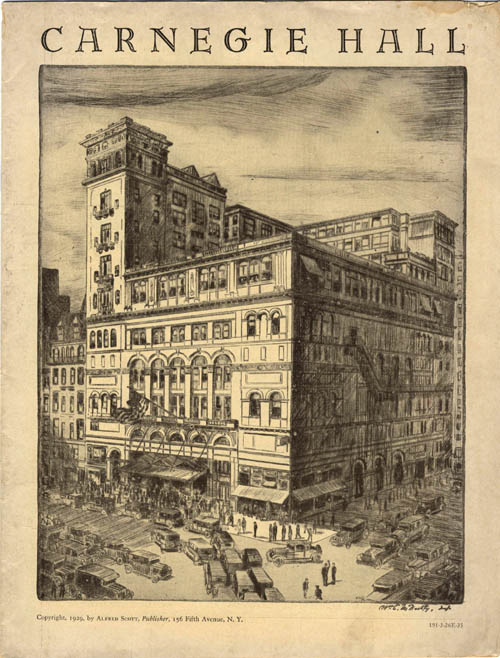
Carnegie Hall, along New York’s 7th Avenue and between 56th and 57th Streets, owes its name to its founder, the Scottish-born industrialist Andrew Carnegie (1835-1919). The foundation stone of the hall was laid on 18 May 1890 and the hall inaugurated with a concert on 5 May 1891. On this occasion Tchaikovsky conducted his Marche solennelle, and at the end of the concert Walter Damrosch, son of Leopold Damrosch, conducted the first performance in New York of Berlioz’s Te Deum. Carnegie Hall soon became the most prestigious concert venue in New York, and many of the concerts mentioned below took place there. The picture above comes from a programme for a concert on 26 March 1935 given by the Philadelphia Orchestra under Eugene Ormandy; the concert included the Queen Mab scherzo from Roméo et Juliette.
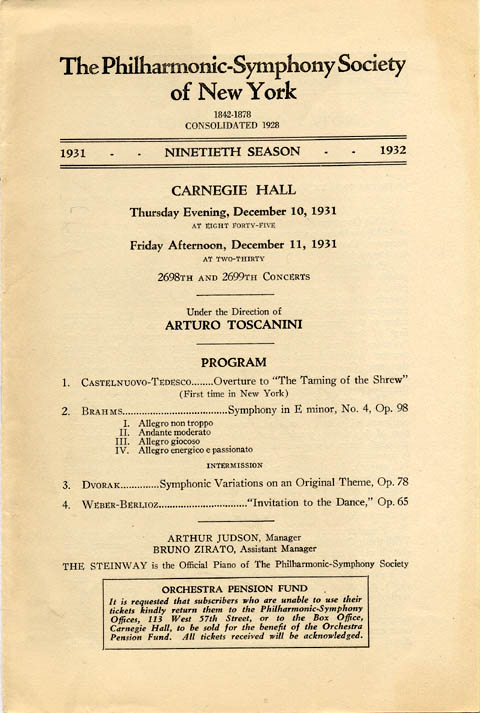
Arturo Toscanini (1867-1957) was conductor of the New York Philharmonic (1928-1936), then of the NBC Symphony Orchestra (1937-1954). Though particularly remembered as a conductor of Verdi, Italian operas, and Beethoven, he was also an outstanding Berlioz conductor, as evidenced by his recordings of Harold en Italie and Roméo et Juliette, as well as some shorter orchestral works, including the Berlioz orchestration of Weber’s Invitation to the Dance (see the discography).
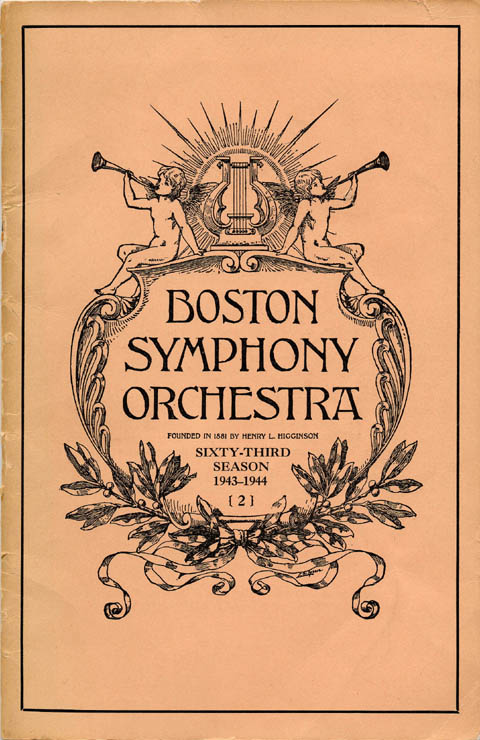
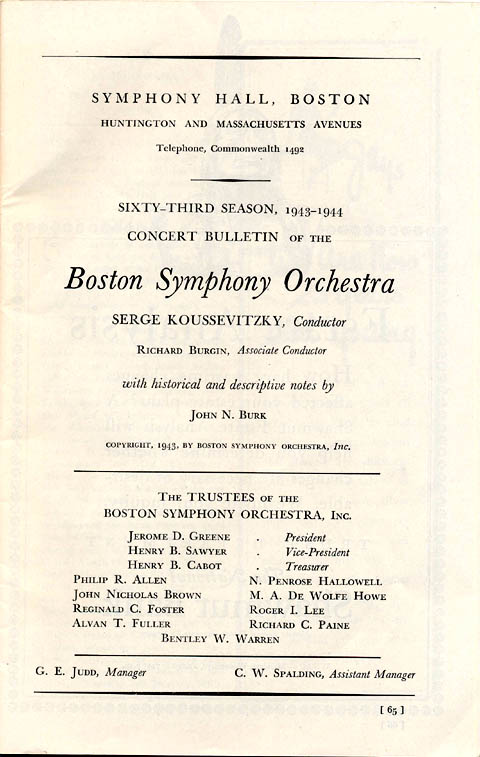
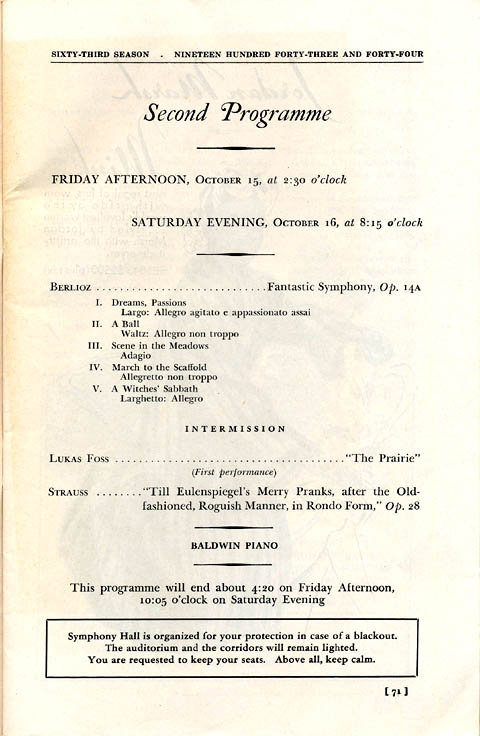
Serge Koussevitzky (1874-1951) was conductor of the Boston Symphony Orchestra from 1924 to 1949, during which period he raised the orchestra to a high degree of eminence; he was succeeded by Charles Munch (see below). He also initiated the summer concerts of the Boston Symphony at Tanglewood. Among the works of Berlioz he recorded with the Boston Symphony was a recording of Harold en Italie, made in 1944 (see also the next concert programme).
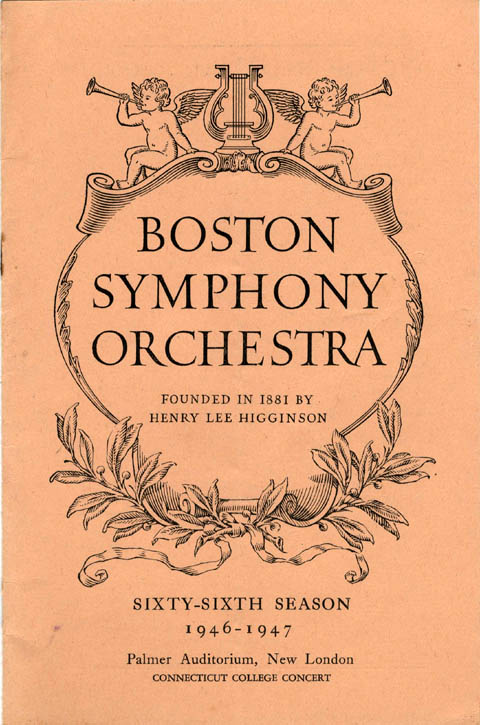
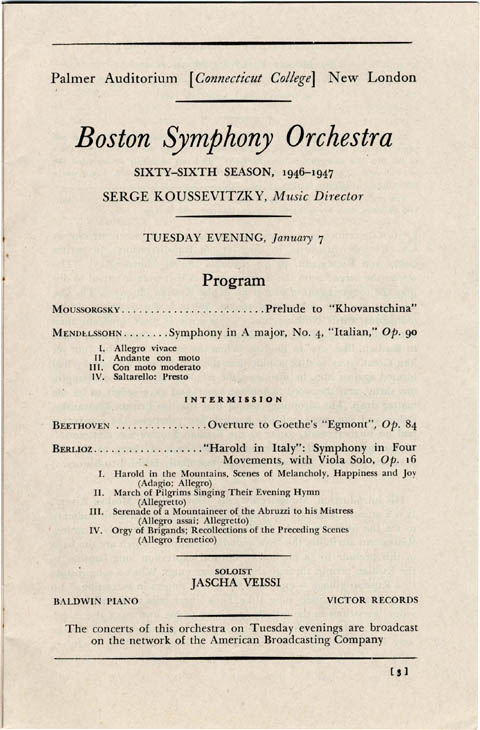
On Koussevitzky see above.
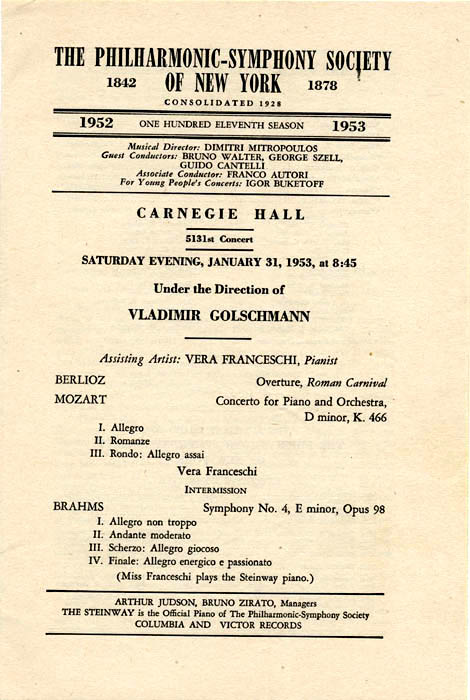
Vladimir Golschmann (1893-1972) was conductor of the St Louis Symphony Orchestra from 1931 to 1958.
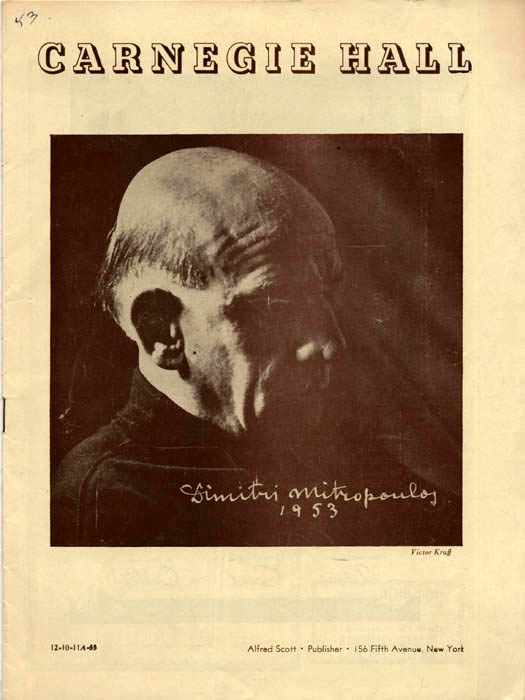
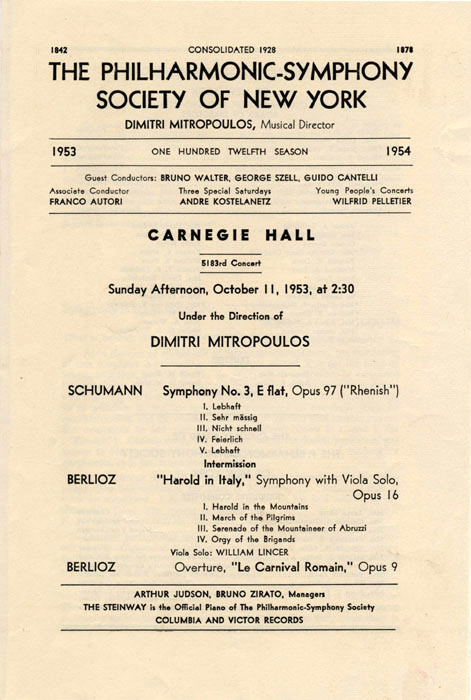
Dimitri Mitropoulos (1896-1960) was conductor of the Minneapolis Symphony Orchestra from 1937 to 1949, and sole conductor of the New York Philharmonic from 1950 to 1958. Among the works of Berlioz he recorded are Les Nuits d’Été with Eleanor Steber, the Requiem and the Symphonie fantastique (see the discography).
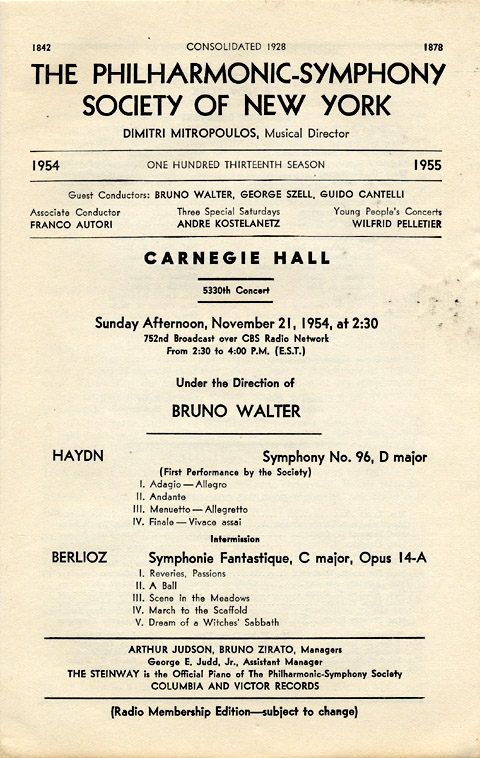
Bruno Walter (1876-1962) was music adviser to the New York Philharmonic from 1947 to 1949; he gave many concerts with the orchestra as guest conductor. He made two recordings of the Symphonie fantastique, the second of them with the New York Philharmonic in conjunction with this 1954 concert (see the discography).
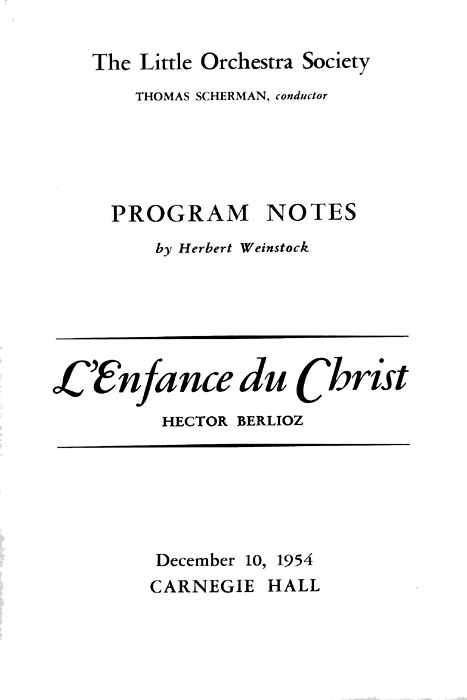
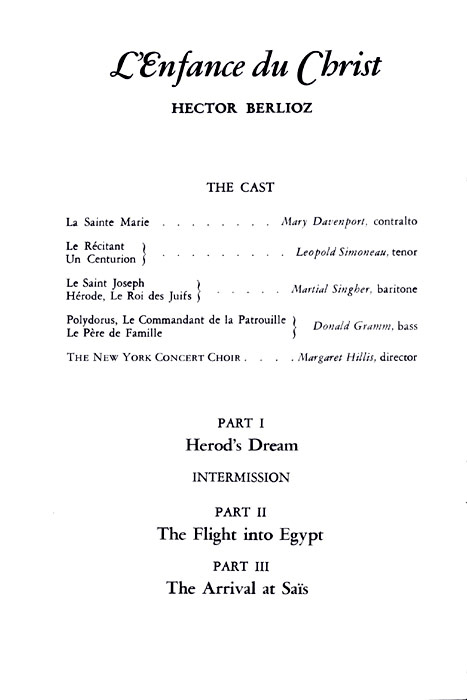
Born in New York, Thomas Scherman (1917-1979) founded The Little Orchestra Society in 1947; it continued in existence till 1975. Scherman evidently had a special affection for L’Enfance du Christ: 3 of the programmes on this page are of performances of this work by him and his forces during the Christmas period, the present one on 10 December 1954, one on 21 December on 1959 from which the portrait below is taken, and one on 18 December 1961.
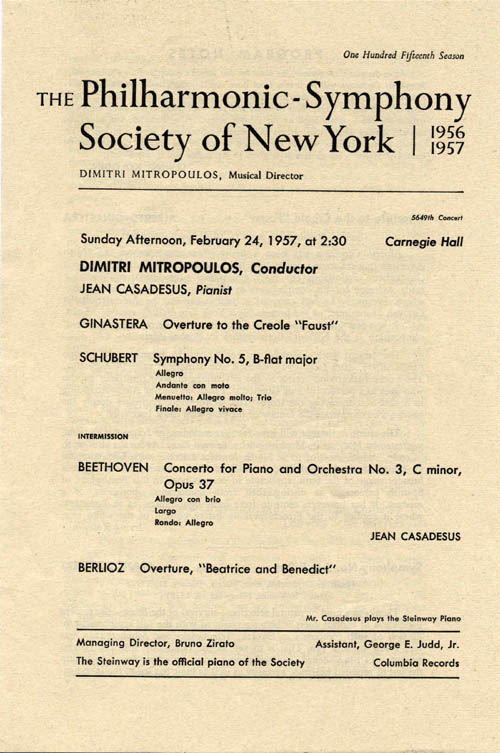
See above on Dimitri Mitropoulos.
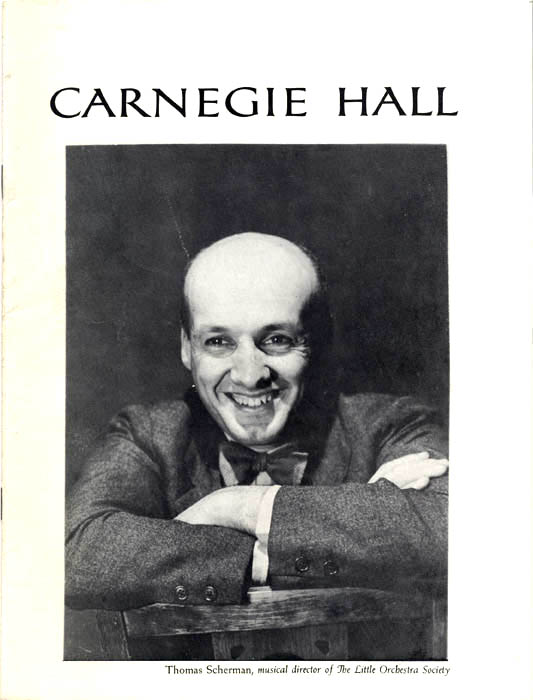
See above on Thomas Scherman.
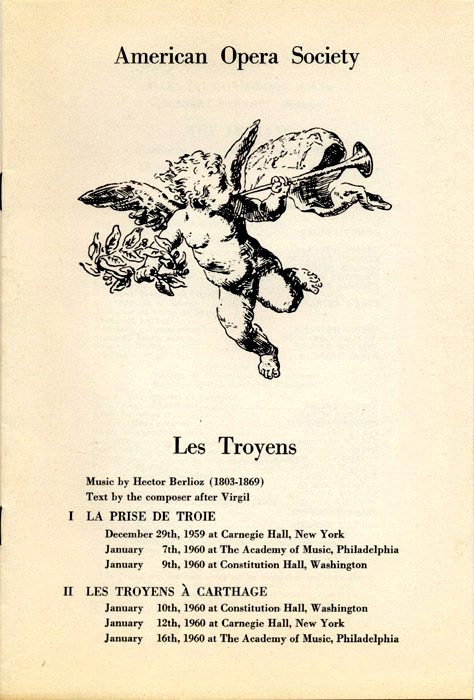
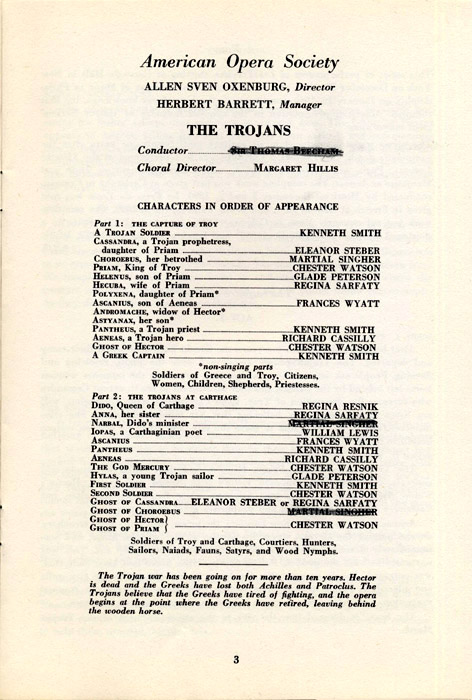
As may be seen from the programme above, three names have been crossed out, those of the conductor (Sir Thomas Beecham, 1879-1961) and of two of the singers in Part 2 of the work, Narbal and the Ghost of Choroebus (both were due to be sung by Martial Singher). Sir Thomas Beecham had a long-standing fondness for Les Troyens (see the page devoted to him) and was due to conduct all six performances, but in the event he was indisposed and only able to conduct those in Washington on 9 and 10 January. The remaining performances, in New York and Philadelphia, were conducted by his assistant, Robert Lawrence, who had conducted the rehearsals. The part of Narbal was sung by John Dennison, and that of the Ghost of Choroebus by Chester Watson (who sang two of the other ghosts).
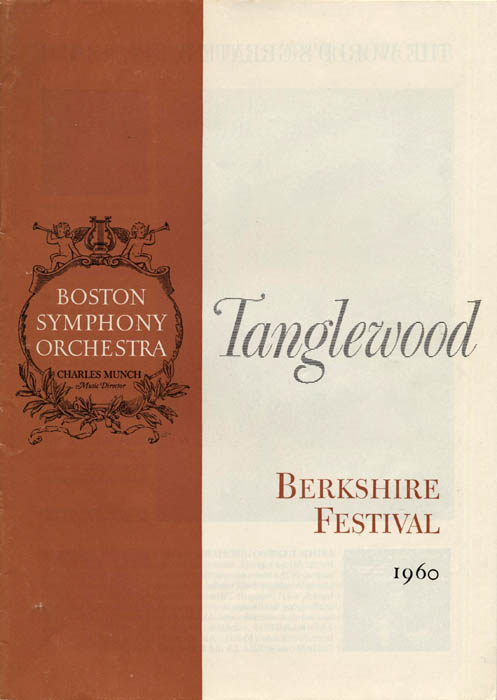
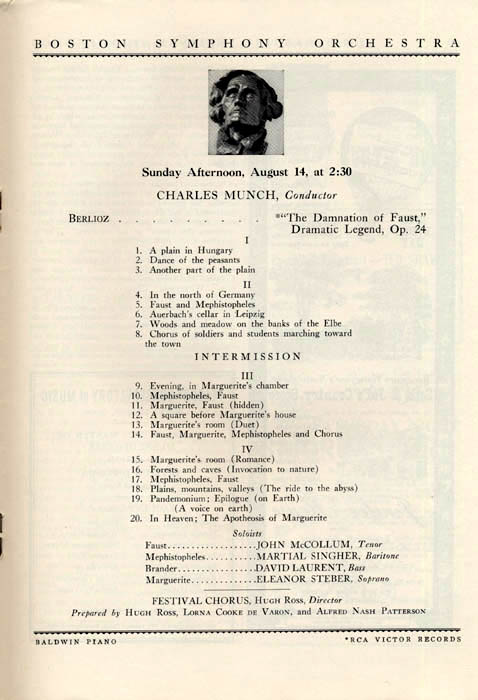
Charles Munch (1891-1968) was conductor of the Boston Symphony Orchestra from 1949 to 1962 in succession to Serge Koussevitzky. In the 1950s he recorded a Berlioz cycle that comprised the Symphonie fantastique, Harold en Italie, Roméo et Juliette, the Requiem, La Damnation de Faust, L’Enfance du Christ, Les Nuits d’Été, and several overtures or orchestral pieces (see the discography). This was the most extensive series of Berlioz recordings made by any conductor prior to Colin Davis. — Unlike the Boston concert of Koussevitzky of 1943 which was given in Symphony Hall, Boston, this 1960 concert by Charles Munch was given at Tanglewood as part of the orchestra’s summer series.
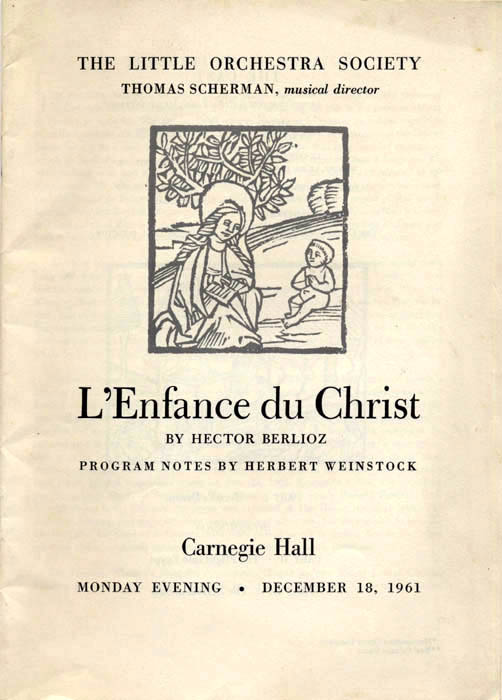
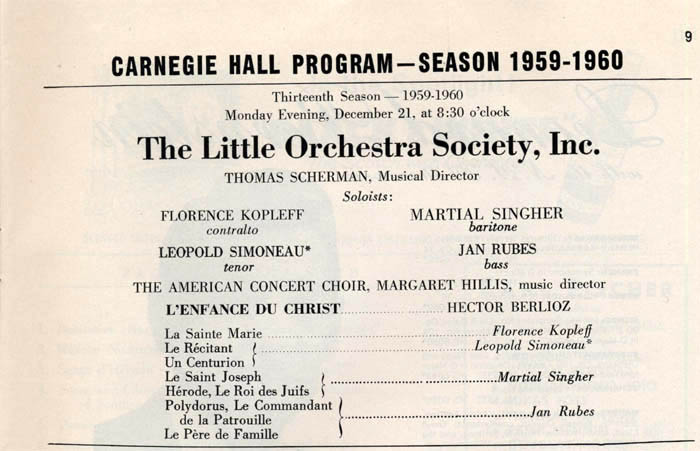
See above on Thomas Scherman.
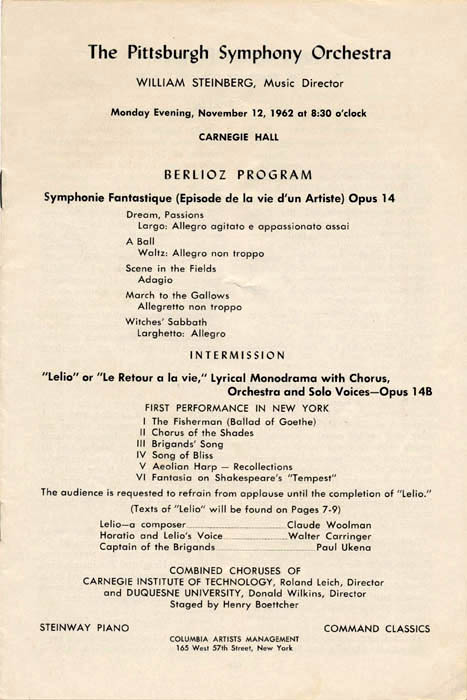
William Steinberg (1899-1978) was conductor of the Pittsburgh Symphony Orchestra from 1952 to 1976. This performance of the Symphonie fantastique together with its sequel Lélio was a special occasion: whereas the Symphonie fantastique is frequently performed on its own, it is unusual for the two works to be performed together, and as the programme states this was the first performance of Lélio in New York. Readers may be interested to know that there is an eyewitness account on this site of this very performance, by William Brewer, who on this occasion sang in the chorus of the Carnegie Institute of Technology.
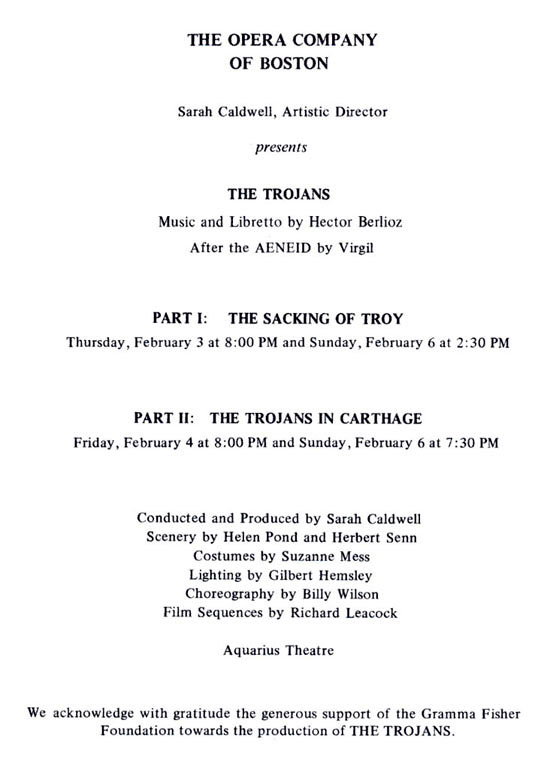
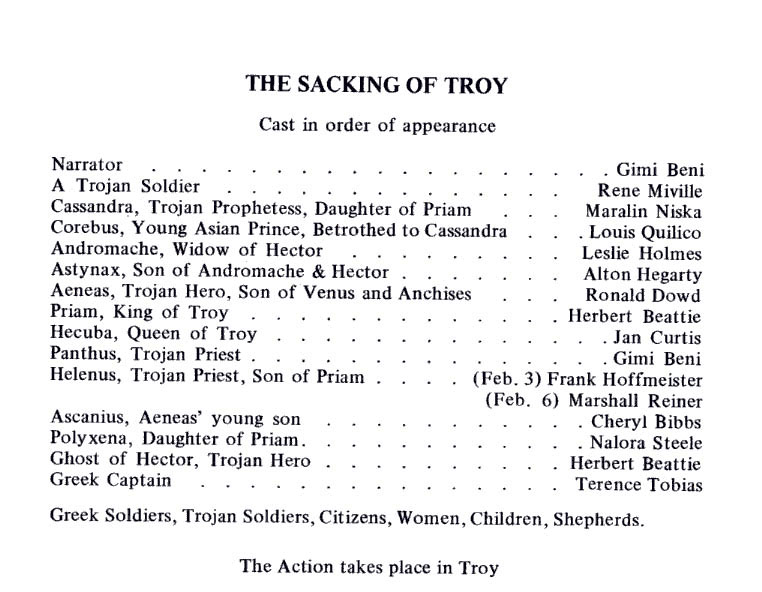
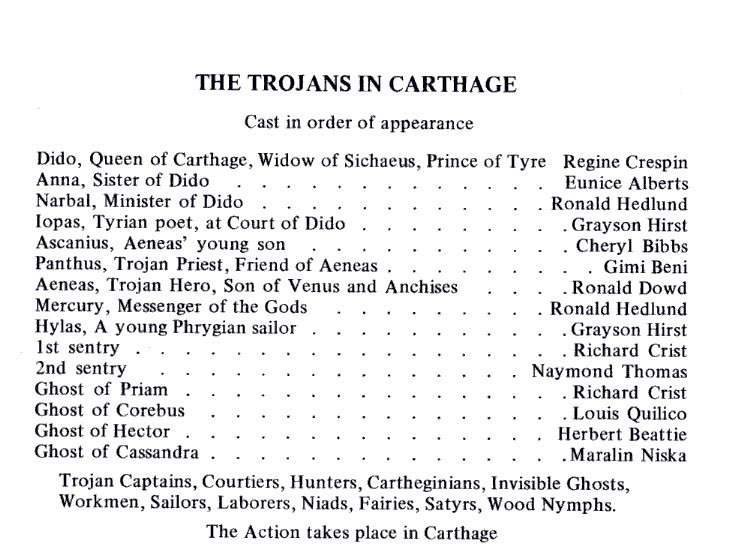
The American-born Sarah Caldwell (1924-2006) devoted her career and considerable talents to the promotion of opera in the United States. She founded the Boston Opera Group in 1957, which in 1965 became the Opera Company of Boston; it was active till 1991 when it went out of business through lack of funds. As both conductor and producer Sarah Caldwell was responsible for many enterprising productions, of both contemporary works and neglected masterpieces from the past. Among these were two of Berlioz’s operas, Benvenuto Cellini and Les Troyens, which under her direction achieved their first staged performances in America. She made a recording of Benvenuto Cellini (sung in English) in 1975.
![]()
The Hector Berlioz Website was created by Monir Tayeb and Michel Austin on 18 July 1997; Berlioz and the Americas page created by Monir Tayeb and Michel Austin on 1 December 2018; this page created on 1 January 2019.
© (unless otherwise stated) Monir Tayeb and Michel Austin for all the texts and images on Berlioz and the Americas pages. All rights of reproduction reserved.
![]() Back to main page Berlioz and the Americas
Back to main page Berlioz and the Americas
![]() Back to
Home Page
Back to
Home Page![]() Retour à la Page d’accueil
Retour à la Page d’accueil